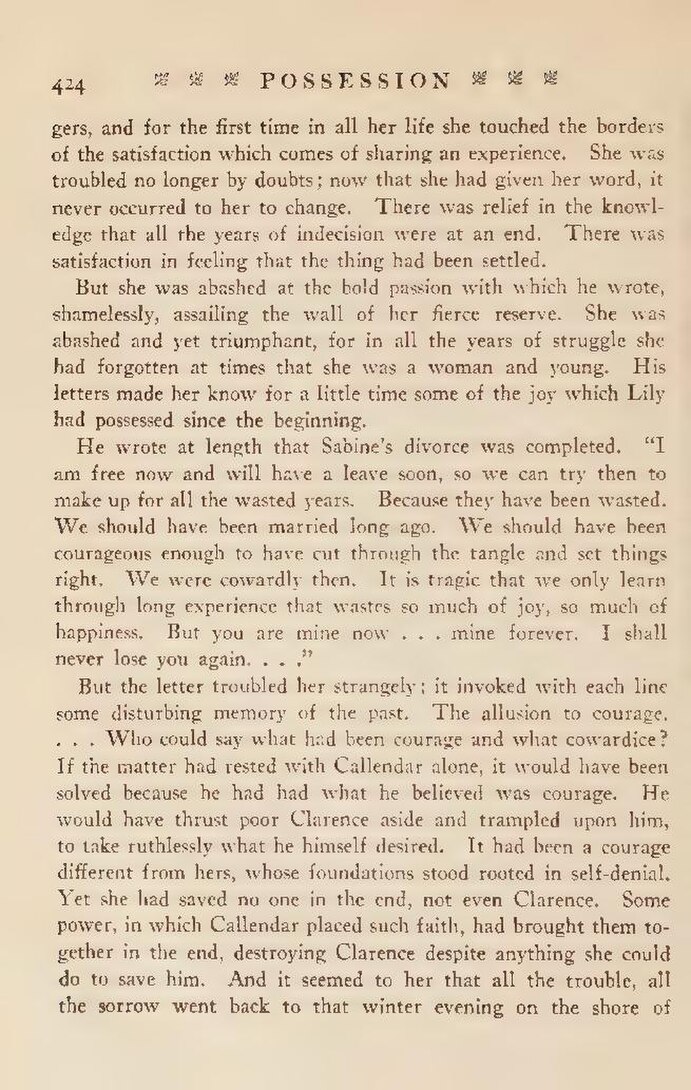gers, and for the first time in all her life she touched the borders of the satisfaction which comes of sharing an experience. She was troubled no longer by doubts; now that she had given her word, it never occurred to her to change. There was relief in the knowledge that all the years of indecision were at an end. There was satisfaction in feeling that the thing had been settled.
But she was abashed at the bold passion with which he wrote, shamelessly, assailing the wall of her fierce reserve. She was abashed and yet triumphant, for in all the years of struggle she had forgotten at times that she was a woman and young. His letters made her know for a little time some of the joy which Lily had possessed since the beginning.
He wrote at length that Sabine's divorce was completed. "I am free now and will have a leave soon, so we can try then to make up for all the wasted years. Because they have been wasted. We should have been married long ago. We should have been courageous enough to have cut through the tangle and set things right. We were cowardly then. It is tragic that we only learn through long experience that wastes so much of joy, so much of happiness. But you are mine now . . . mine forever. I shall never lose you again. . . ."
But the letter troubled her strangely; it invoked with each line some disturbing memory of the past. The allusion to courage. . . . Who could say what had been courage and what cowardice? If the matter had rested with Callendar alone, it would have been solved because he had had what he believed was courage. He would have thrust poor Clarence aside and trampled upon him, to take ruthlessly what he himself desired. It had been a courage different from hers, whose foundations stood rooted in self-denial. Yet she had saved no one in the end, not even Clarence. Some power, in which Callendar placed such faith, had brought them together in the end, destroying Clarence despite anything she could do to save him. And it seemed to her that all the trouble, all the sorrow went back to that winter evening on the shore of
